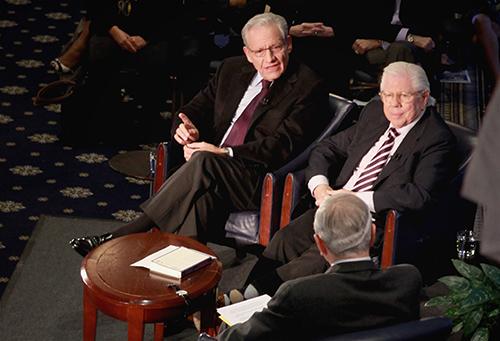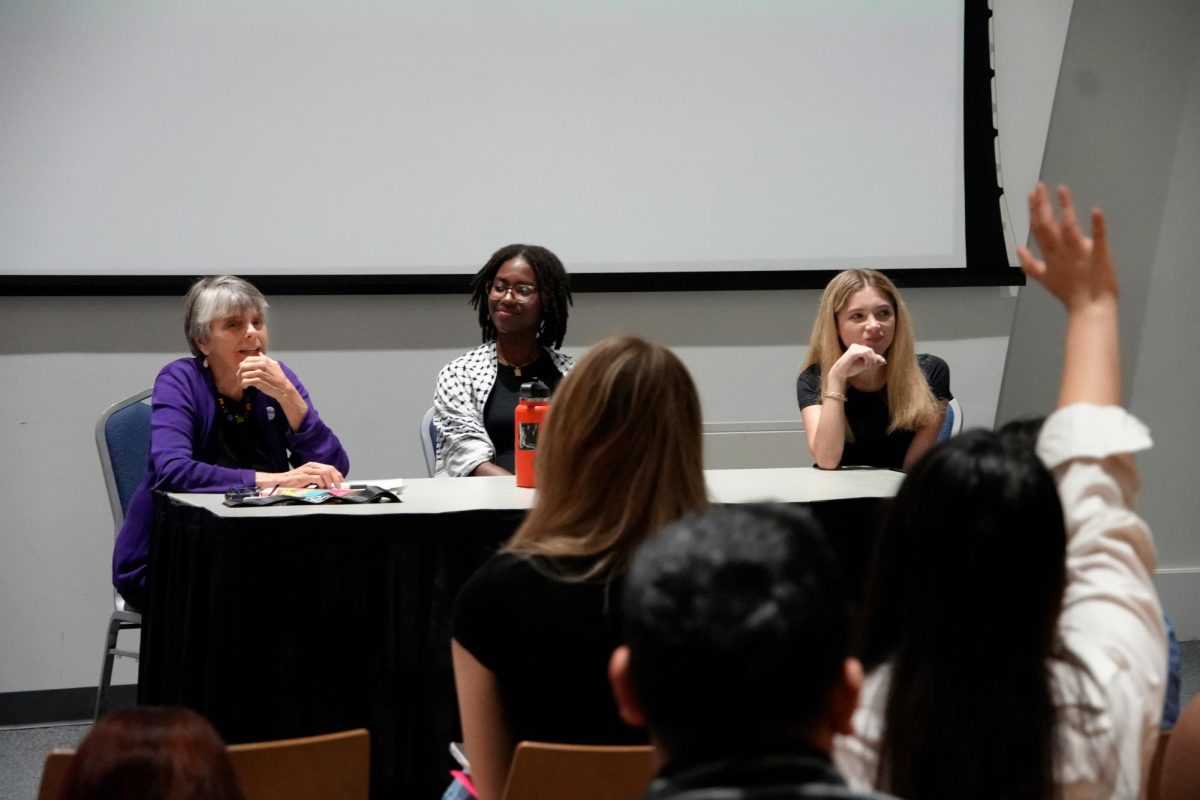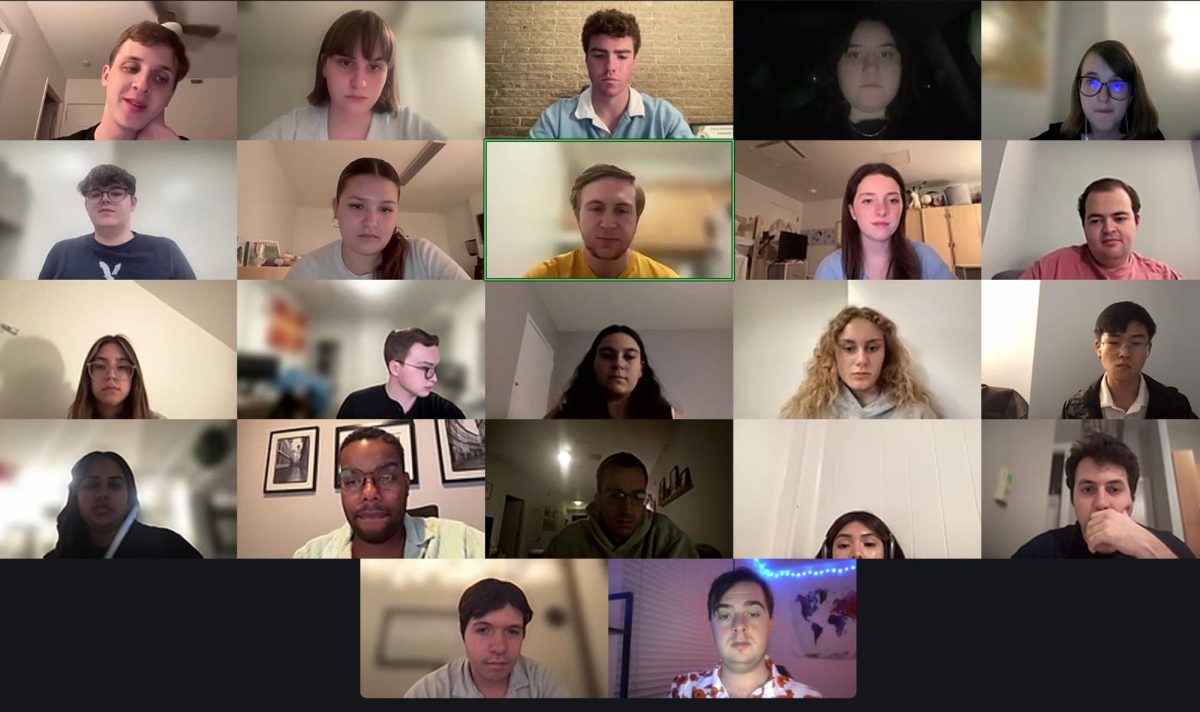
Journalists Carl Bernstein and Bob Woodward relived their Pulitzer Prize-winning investigative reporting into the Watergate Scandal on Monday at The Kalb Report.
The duo, who famously exposed the 1972 scandal that eventually brought down President Richard Nixon’s administration, shared a timeline of their investigation, the role of their colleagues at the Washington Post and their take on modern-day journalism.
Here are some of the stories they shared:
1. Facing down the White House
The pair faced forceful opposition to their reports about Nixon. Any questions about the content of their stories were deflected by the White House, who accused the Post of reporting misinformation, Bernstein and Woodward said.
When Bernstein contacted Attorney General John Mitchell to share their findings, Mitchell responded by threatening Washington Post publisher Katharine Graham, saying, “Graham is going to get her tit caught in a big, fat wringer.” That response was a signal of the tense climate during the investigation, as the White House tried to lock down on negative press.
“Can you imagine them saying that now?” Woodward said.
2. Reporting in a politically charged atmosphere
Both reporters were fully aware of the risks of revealing such a scandal and the importance of error-free reporting. Bernstein and Woodward said they laid out ground rules for their reporting over 10-cent cups of coffee.
For example, both agreed never to use the word “impeachment” in case they were accused of having a political agenda. The first rule for their coverage was “If somebody said ‘no,’ ‘no’ prevailed,” Bernstein said.
3. Editors in bathrobes
Woodward and Bernstein also feared wiretapping as they were reporting, and they did the bulk of their work late at night. They recalled once going to the house of their editor, Ben Bradlee, who opened the door for them at 2 a.m. wearing a bathrobe.
Bernstein said everyone thought they had “gone nuts.”
4. Backed by The Washington Post
They said their reporting was successful because of the support of Bradlee and their colleagues at the Post.
When the Watergate scandal started to gain steam nationwide, some said national news reporters should take over the story. But Bradlee defended Bernstein and Woodward, claiming it didn’t matter what their positions were on the staff because they had found the news.
5. Advice for today’s journalists
When asked what they think of journalism today, Bernstein said there was “not enough good reporting done by the new media.”
“We’re going to miss something. The key to new media is old leg work,” he said.
He also said reporters today are looking for “ideological ammunition” instead of hard-hitting stories.
“Good reporting is the best obtainable version of the truth,” Bernstein said.





